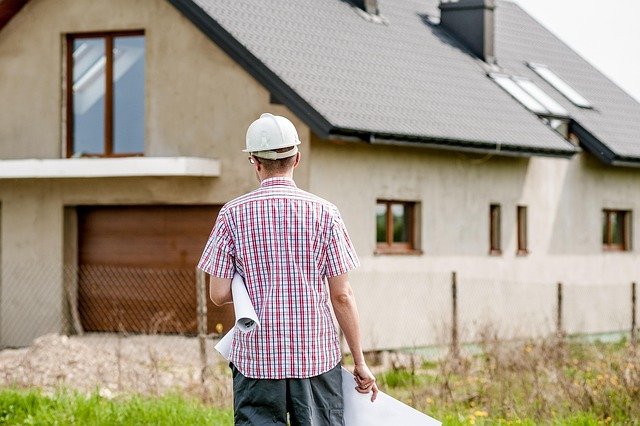What to Know About Construction Companies That Build Residential Homes
Many people considering new housing alternatives begin by researching construction companies. These providers specialize in building homes through a variety of approaches, from modular to traditional builds. This overview explains how home construction companies typically operate and what to consider when comparing services, timelines, and project scope.

What Services Do Residential Construction Companies Typically Include?
Most residential construction companies offer a comprehensive package of services that extend beyond simple building. Core services typically include site preparation, foundation work, framing, roofing, utility installation, and interior finishing. Many companies also handle permitting and inspections, coordinating with local building authorities to ensure compliance with codes and regulations. Full-service construction firms may additionally provide design services, either in-house or through partnerships with architects. Some companies extend their offerings to include landscaping, driveway installation, and even interior design consultations. When evaluating potential builders, request a detailed breakdown of included services versus those requiring additional contractors to avoid unexpected costs or coordination challenges.
How Do Construction Companies Manage Different Phases of Homebuilding?
Residential construction typically follows a structured process divided into distinct phases, each requiring different expertise and oversight. Initially, companies conduct site preparation and foundation work, creating the literal groundwork for the project. The rough framing phase follows, constructing the skeleton of the home, after which mechanical systems (plumbing, electrical, and HVAC) are installed. After passing inspections, insulation and drywall installation proceed, followed by interior finishing work including flooring, cabinetry, and fixtures. Throughout these phases, construction companies employ various management approaches—some use dedicated project managers who oversee the entire process, while others operate with site supervisors who coordinate multiple subcontractors. Quality construction companies establish clear communication channels with homeowners and provide regular updates on progress and any schedule adjustments as the project advances through each phase.
What Are the Differences Between Modular and Traditional Approaches in Residential Construction?
Traditional stick-built construction and modular building represent two fundamentally different approaches to home construction. Traditional construction involves building the entire structure on-site, with materials delivered and assembled piece by piece according to architectural plans. This method offers maximum customization but typically requires longer timeframes due to sequential construction processes and potential weather delays.
Modular construction, by contrast, involves manufacturing major components of the home in climate-controlled factories, then transporting these prefabricated sections to the building site for assembly. This approach can reduce construction time by up to 50% compared to traditional methods while often providing better quality control. However, modular homes may have certain design limitations based on transportation requirements. Some construction companies specialize exclusively in one approach, while others offer both options to meet different client needs and budget considerations.
What Should You Consider When Comparing Home Construction Companies?
When evaluating potential construction partners, several factors deserve careful consideration beyond simple price comparisons. First, examine each company’s portfolio and completed projects, particularly those similar to your envisioned home in style, size, and budget. Request references from recent clients and, if possible, tour completed homes to assess build quality and attention to detail.
Verify credentials including appropriate licensing, insurance coverage, and professional certifications. The company’s financial stability matters too—established firms with proven track records may offer greater protection against project abandonment or substandard work. Communication style and responsiveness during the initial consultation often foreshadow how the company will handle the project relationship. Finally, compare warranty offerings carefully, as coverage terms and durations vary significantly between builders and can greatly impact your long-term satisfaction and financial protection.
How Does Location and Project Type Influence Your Choice of Construction Company?
Location and project specifics significantly influence which construction company might best serve your needs. Companies with extensive local experience understand regional building codes, have established relationships with municipal inspectors, and recognize area-specific challenges like soil conditions or climate considerations. Local builders also typically maintain networks of trusted suppliers and subcontractors, potentially offering more competitive pricing and reliable scheduling.
The complexity and style of your project also dictate builder selection. Some companies excel at entry-level production homes but lack experience with luxury custom designs or specific architectural styles. Others specialize in certain construction methods or sustainable building practices. For instance, if you’re planning an energy-efficient home with specialized systems, prioritize builders with demonstrated expertise in green building techniques and relevant certifications. Similarly, challenging sites with steep slopes or waterfront considerations require builders with specific engineering and construction experience.
What Are Typical Cost Ranges for Different Types of Residential Construction?
Construction costs vary significantly based on location, home size, complexity, and finish level. Understanding general price ranges helps set realistic expectations when comparing builder proposals.
| Construction Type | Average Cost Range (per sq ft) | Typical Timeline | Key Considerations |
|---|---|---|---|
| Production/Tract Homes | $100-$200 | 4-6 months | Limited customization, predetermined floor plans |
| Semi-Custom Homes | $200-$300 | 6-9 months | Some design flexibility, higher-quality finishes |
| Full Custom Homes | $300-$500+ | 10-16 months | Complete customization, premium materials |
| Modular Construction | $180-$250 | 3-4 months | Faster timeline, factory quality control |
| Luxury Custom Homes | $500-$1,000+ | 12-24 months | Architectural details, high-end materials |
Prices, rates, or cost estimates mentioned in this article are based on the latest available information but may change over time. Independent research is advised before making financial decisions.
Working with residential construction companies requires careful planning, clear communication, and thorough evaluation. By understanding the different approaches to home construction, the typical services included, and how to evaluate builders based on your specific project needs, you can make more informed decisions throughout the building process. Whether you choose a modular approach for efficiency or traditional construction for maximum customization, selecting the right construction partner is perhaps the most critical decision in achieving your vision of a well-built home that meets your needs and budget constraints.




